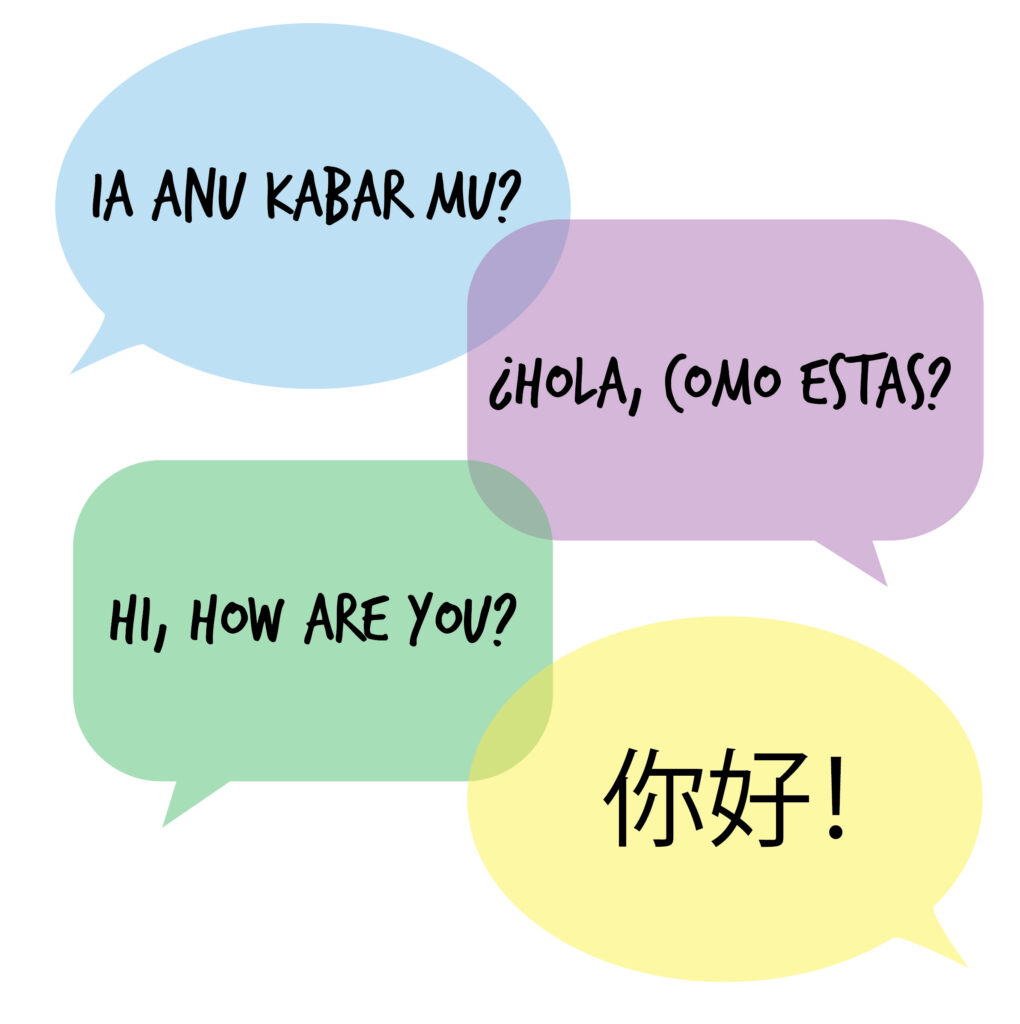Considering the world’s population, there are more multilingual speakers than monolingual speakers. Research shows that those who are multilingual have an advantage in the workplace over those who are not.

Language is very important because it gives individuals an expansive platform where they are able to express their emotions, thoughts and to issue commands.
The bridge that first allowed human ancestors to obtain resources and to navigate the world was language. Because of culture is constantly changing, language is constantly changing as well. Each language is influenced by other languages. That is why we have over 6,500 languages in the world today.
“Knowing two languages has allowed for me to have doors open, because of my ability to translate and understand individuals needs, which also makes it easier for me to attend to their needs,” said Guillermo Salas, 19.
Living in a globalized world, speaking more than one language comes with many benefits.
Scientists have discovered the advantages of being bilingual and the effects it has on the brain and within society. The American Community Survey found that one in five individuals over the age of five speak another language other than English in their home.
“Being bilingual has allowed me to navigate in a workplace where there are individuals with different backgrounds, ethnicity and experiences. It has also empowered me to embrace who I am as an individual, where I come from and even understand peoples needs in a very diverse environment,” said Yesenia Aguilar, 36, from Hillsides, an advocacy group for creating lasting change to improve children’s lives.
Being bilingual does not only allow you to hold a conversation with a wider range of individuals, it also helps develop critical thinking at an early age of development. Knowing two languages allows for children to learn how to multitask, according to a study done at York University. According to further studies done by the American Speech Language Hearing Association, when an individual is talking to the child in one language, the brain automatically tries to translate to both languages and add words into categories.
Parents often choose to teach their children Spanish in the home and let them learn English by talking to their friends and attending school.
“When I was expecting my first child, Ariah, I knew that I wanted her to learn Spanish first and then English,” said Rebecca Lamas, 24, mother of two.
In order for the new generation to communicate with family members, parents find it important to teach their children their native language.
“It was also important for (my daughter) to know both languages to communicate with adults and also for her to communicate in Spanish with her grandparents,” said Lamas.
One must not underestimate the power of language, for it doesn’t only unite people, but it allows individuals to have an open mind to a more diverse world.
Language could be the bridge that unites individuals and raises curiosity in being in touch with a different group of individuals, culture and even religion.






